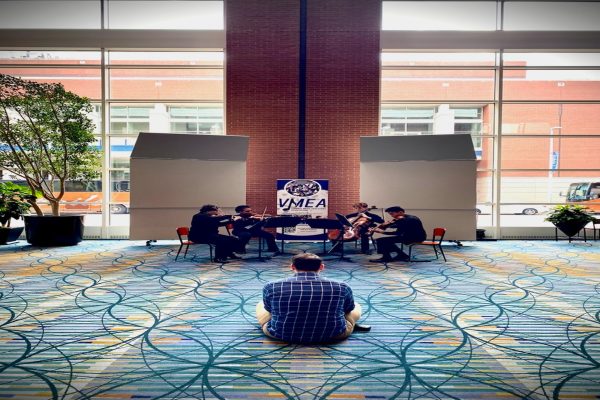Foreign film club discovers new territory through cinema
Most Americans are familiar with the glamour, glitz and bright lights of Hollywood. One could even say that it’s as recognizable as barbecue and fireworks on the 4th of July. In fact, Hollywood has been a one of the American staples for decades. And, with the advancements in technology it continues to strengthen its grip on worldwide box offices. Despite the chaos around the world today, in Hollywood, the cameras still roll and stories are still written.
“For me, the film industry is about illuminating the human condition through abstract and emotional cinematic art,” film club member Allison Pennington said.
It all started when senior Nathan Arnette invited a few kids to his house to watch some films. The movie was from 1977, was Japanese-made and called House. It was a horror movie, inspired by popular films at the time such as Jaws. The movie was nonsensical, silly, and somewhat poorly-produced, but it was enjoyable nonetheless and obviously was the result of someone’s passion. As a teenager today, 1977 was a long, long time ago, yet this film still intrigued me in a different way than American cinema had in the past. It made me realize that production quality isn’t everything in a movie.
According to Arnette, after the first “meeting”, we realized that this idea, to watch foreign films was a great idea. Not only did it bring people together, but it was different than most teen get-togethers and there was always something new and interesting to discuss.
Following House, came an action packed martial arts film made by a Ugandan man named Isaac, called Who Killed Captain Alex?. Even though it had an extremely low budget of around $200, the heart and soul of the film was evident. The movie didn’t have much in the department of special effects, camera work, or even much professionalism, but one could clearly see the sheer enthusiasm put in by the actors and cast. None of the actors or crew were paid; the film was purely a passion project for a poor village in Uganda.
According to Pennington, the film industry can be an excellent medium for alleviating exhaustion brought on by modern society, but can also be used to further political agendas,’ showing understanding of the influence of modern cinema.
As the list of members became more consistent, club members were able to meet every once in a while at Arnette’s house to view more movies. Members watched foreign films such as Who Killed Captain Alex, an Italian horror movie called Suspiria, and then a set of South Korean films titled The Vengeance Trilogy. Both of these movies were made by large studios, and were extremely professional in their production.
“Although these movies’ are production are similar to American films, they seemed to be completely different anything I had seen in any American production. There was a lot more gritty detail and mature themes in these movies,” film club member Louis Paulson said. “Movies like these also served as the inspiration for similar Western movies such as John Wick and Kingsman. “
On the other side of the spectrum, there was a Japanese anime film titled Kimi No Na Wa (Your Name in English). The movie has beautiful animation, music, and atmosphere that really lends to its overarching story of destiny and magic. Even though film club members watched this movie three different times, it never got old.
While these movies were entertaining, one of the most important lessons film club members learned was that everyone, no matter where they are, shares the same amount of troubles and hardships. No place in the world is completely free from the problems that come with society and humanity in general, and these struggles are what define us as members of a culture and country.











